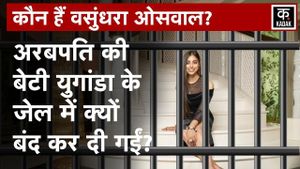The German federal election on February 23, 2025, is rapidly approaching, marking what is referred to as the 21st Bundestag election. This election is particularly noteworthy as it follows the breakdown of the governing coalition led by Chancellor Olaf Scholz (SPD) after losing a vote of confidence, leading to the first early election since 2005. The political climate is intense, with key issues like migration and the nation's economic performance dominating the campaign discussions.
Approximately 60 million citizens, including around 31 million women and 29 million men, will be called to vote. With voter participation rates having hovered around 76.6 percent during the last election, significant attention is paid to voting engagement. The upcoming vote is expected to witness around 2.3 million first-time voters, equaling about four percent of eligible voters.
New rules introduced for this election are causing increased scrutiny of the German electoral process. Each voter has two votes: the first for individual candidates running to represent their local electoral district and the second, known as the Zweitstimme, for party lists. This structure continues; nonetheless, the number of representatives is capped at 630 seats, which means winning candidates may not secure their seats if their parties do not reach the five percent threshold for party representation.
Historically, smaller parties struggle to gain traction, and this election could be pivotal for several of them. For the first time, the newly formed party led by Sahra Wagenknecht, called the Bündnis Sahra Wagenknecht (BSW), and both the FDP as well as Die Linke face uncertain prospects, as they teeter on the edge of the threshold to enter parliament.
Hesse, where approximately 4.3 million people will cast their votes, provides specific insights with 14 parties and 192 direct candidates vying for seats. Yet, some districts, such as Marburg and Main-Kinzig/Wetterau II/Schotten, will only see male candidates competing. Conversely, Darmstadt boasts more female candidates than males, sparking discussions about gender representation.
The public's final voting decisions hang uncertainly. Recent polls suggest about 20 percent of eligible voters remain undecided just days before the election, reflecting possible concerns over key topics like the economy—following two years of recession—and migration. Candidates have been divided over how to articulate their stances on these pressing issues, with leaders encouraging their supporters to rally behind their visions going forward.
Underlying all these developments is frustration over how cramped the electoral discourse has become. Critics, including representatives from groups focused on social policy, decry the lack of focus on urgent social issues such as healthcare accessibility and affordable housing, deeming the emphasis on economy and migration as insufficient.
Election day will see polling stations operational from 8 AM to 6 PM, and citizens are reminded to bring their voter notifications and identification documents to cast their votes. New regulations have stipulated the process for ensuring elections are conducted smoothly, with discretion required from participants and officials alike.
Chancellor Olaf Scholz seeks re-election against strong opposition from Friedrich Merz (CDU), who leads the Union party, and Robert Habeck (Greens), the latter contesting for the first time with ambitions focused heavily on climate policy. Alice Weidel from the AfD will also make history as the first female candidate from her party to run for Chancellor, adding to the election's historical narrative.
This election is not merely shaped by its candidates but by the mentioned reforms, altering the political electorate's composition and reflecting broader societal changes. Such innovative approaches could redefine how parties operate under the new framework and challenge established political structures.
Voter turnout continues to be emphasized as key, with many local and national strategists anticipating this will be tested as online voting tools and brief voting procedures push citizens to engage, particularly as the prospect of change is thrust upon them amid growing scrutiny of party platforms.
On the day after the election, initial results will be reported immediately after polls close, from multiple surveys conducted throughout the campaign. This time, analysts will hone in closely on how many small parties managed to earn representation and if any new alliances can form to secure power amid shifting attitudes.
Overall, the 2025 Bundestag election reflects more than just leaders vying for the seat of power; it symbolizes the intertwining of voter engagement, societal issues, and political reform—elements critically shaping Germany's future directions.



